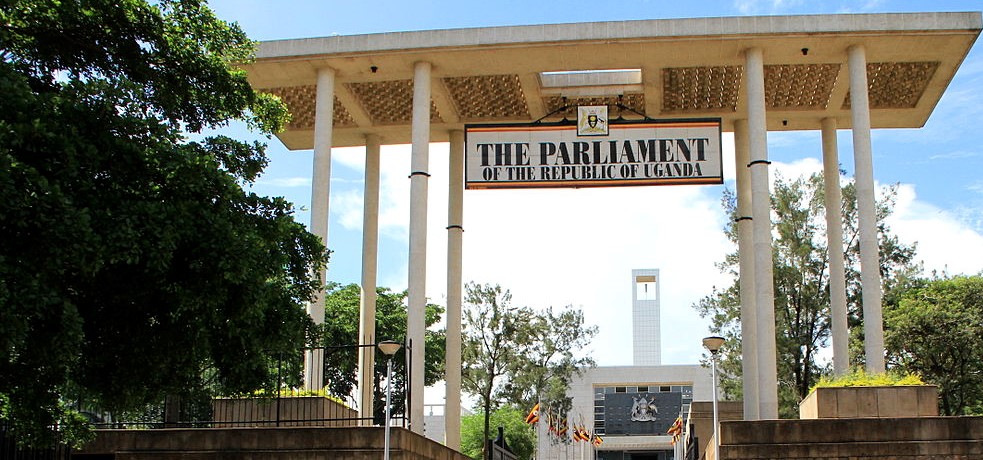By Edrine Wanyama |
Uganda’s parliament on September 8, 2022 passed a draconian law that criminalises various uses of computers and digital technologies and largely curtails digital rights.
Among the key regressive provisions is the prohibition of the “misuse of social media”, described in clause 6 as publishing, distributing or sharing information prohibited under Uganda’s laws. A highly punitive penalty has been prescribed for the offence: imprisonment of up to five years, a fine of up to UGX 10 million (USD 2,619), or both.
Other retrogressive provisions in the Computer Misuse (Amendment) Bill 2022 are prohibition of sending or sharing of unsolicited information through a computer, and prohibition of sending, sharing or transmitting of malicious information about or relating to any person.
Prior to the enactment of the law, the Collaboration on International ICT Policy for East and Southern Africa (CIPESA) presented its analysis of the Bill to parliament’s Committee on Information and Communications Technology (ICT), which indicated that the proposed amendments would be a blow to the enjoyment of online civil liberties. However, the committee has disregarded most of the feedback received from stakeholders listed in the Committee report, many of whom raised concerns on the digital rights gaps within the Bill..
In presentations to the parliamentary committee, CIPESA argued that rather than introducing new, poorly defined offences, the amendments should have focussed on addressing existing retrogressive provisions in the law on computer misuse, such as section 24 on cyber harassment and section 25 on offensive communication, which have been used severally to criminalise freedom of expression, including through arrests and prosecution of journalists, activists and government opponents. Moreover, trolling, cyber harassment, unauthorised sharing of intimate images, and other forms of online violence against women and girls, are not addressed either.
Gorreth Namugga, the shadow minister for ICT and a member of parliament’s ICT Committee, said in a minority report that the issue of misuse of social media was not discussed in the committee and was not among the clauses the Computer Misuse (Amendment) Bill sought to amend. She added that the ICT Committee did not make a deep analysis of the issue, and none of the organisations and individuals consulted by the committee offered any input on the matter.
In introducing the offence of misuse of social media, the committee reasoned that, while considering the Bill, it observed that “the information technology evolution had created a new medium of communication called social media that is not fully regulated in the existing laws, yet it is “the commonest platform of Computer Misuse.” The committee therefore deemed it fit to define social media and to regulate it.
Accordingly, the Bill defines social media as a set of technologies, sites, and practices which are used to share opinions, experiences and perspectives. It cites as examples YouTube, WhatsApp, Facebook, Instagram, Twitter, WeChat, TikTok, Sina Weibo, QQ, Telegram, Snapchat, Kuaishou, Qzone, Reddit, Quora, Skype, Microsoft Team and Linkedin.
The new law will provide that “a person who uses social media to publish, distribute or share information, prohibited under the laws of Uganda or using disguised or false identity, commits an offence.” It adds that where “prohibited” information is published, shared or distributed on a social media account of an organisation, the person who manages the organisation’s social media account shall be held personally liable for the commission of the offence.
There remain questions as to how the committee introduced provisions on misuse of social media that were not in the Bill, not subjected to stakeholder consultation and, according to the minority report, not discussed by committee members. Moreover, the term, “under the laws of Uganda” with reference to prohibited information is very broad and ambiguous. This could be used by the government and its agencies to target critics and would largely curtail freedom of expression and access to information.
Uganda is not new to regressive control of digital technologies. In 2018, the east African country introduced a tax through the Excise Duty (Amendment) Act that required users to pay a daily tax in order to access social media services. The tax, which dismally failed to raise the anticipated revenues, was replaced with a 12% levy tax on internet data. The country’s digital taxation regime has become a key impediment to inclusive access and affordability, with millions of citizens still left out of the digital society. Uganda also routinely blocks access to the internet and social media. Since January 2021, Facebook has been blocked in Uganda on orders of the government.
While the new law attempts to define “unsolicited information” as meaning “information transmitted to a person using the internet without the person’s consent, but does not include an unsolicited commercial communication.” The guidance offered by the provision only extends to interpretation of the earlier blanket provision that had been proposed in the Bill. It does not provide any guarantees for the protection and enjoyment of freedom of expression and access to information.
In submissions to parliament, CIPESA stated that, besides undermining civil liberties, many provisions of the Bill duplicated existing laws such as the Regulation of Interception of Communications Act, 2010 and the Data Protection and Privacy Act, 2019, and would be difficult to implement
According to the minority report, all the clauses in the Bill are already catered for in existing legislation and in some instances offend Uganda’s constitution. The report states: “The fundamental rights to access information electronically and to express oneself over computer networks are utterly risked by this Bill. If passed into law it will stifle the acquisition of information. The penalties proposed in the Bill are overly harsh and disproportionate when compared to similar offences in other legislations. This Bill, if passed, will be a bad law and liable to constitutional petitions upon assent.”
Despite the largely regressive law, there are some positives, such as defining and proscribing hate speech and i the law provides and if rightly employed they could potentially improve on certain aspects regarding the digital civic space. Thus;
- The addition of the element of intent in clause 3 in the definition of the offence of unauthorised access is quite progressive. It potentially helps to exonerate innocent individuals from wanton prosecution of what would constitute criminal access over innocent and unintended access. The Bill did not have the element of intent which is core to determination of criminal liability to qualify the offence.
- Clause 3 was initially overly broad to the extent of discouraging the public from sharing information to the best interests of the child such as their protection from danger and harmful practices. The amendment in clause 3 in as far as it provides for circumstances under which information about children may be shared will serve to ensure that while privacy of the child is paramount, their best interest should not be disregarded.
- Clause 4 of the Bill defines hate speech which was not previously provided for. It goes milestones in addressing hate speech which has for decades posed challenges to public order, security and persons. Furthermore, section 41 of the Penal Code Act on sectarianism presented uncertainties having limited the definition of sectarianism to groups of religion, tribe, ethnic or regional origin.
- The law recognizes other laws on disciplinary action against errant leaders. Thus, the deletion of clause 7 is commended. It is a progressive move against a potentially excessive and discriminatory provision as was initially presented in the Bill.
The newly passed Bill is a threat to digital rights and digital civic space and falls short of the key international minimum standards. As such, it is imperative for the law to be challenged in court and for the president to deny its assent and return it to parliament for reconsideration.


